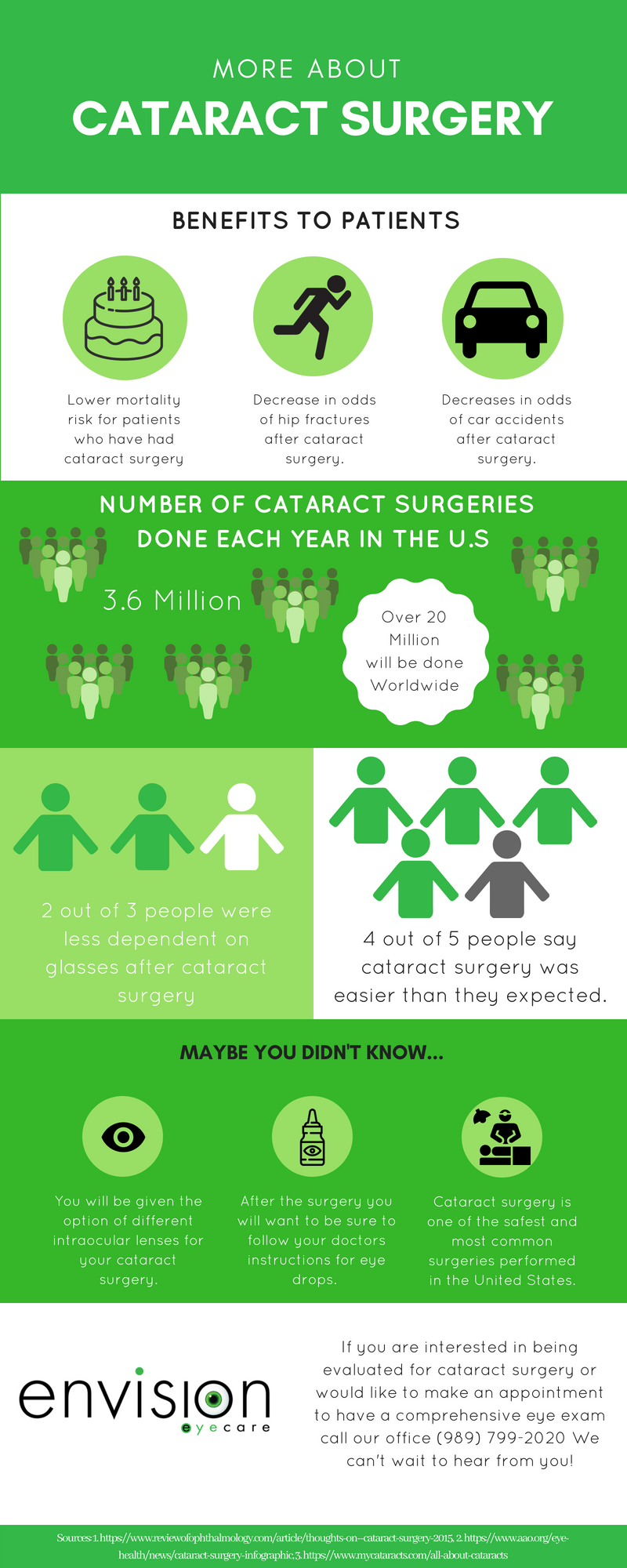Is SMILE Eye Surgical Procedure The Right Selection For You? Essential Considerations And Insights
Is SMILE Eye Surgical Procedure The Right Selection For You? Essential Considerations And Insights
Blog Article
Uploaded By-Hollis Cooley
If you're contemplating SMILE eye surgical procedure, consider this: are you prepared to accept potential visual liberty, or does the idea of any type of risks make you be reluctant? Your decision will certainly hinge on a careful balance of evaluating the benefits versus the uncertainties. It's crucial to dive deeper right into the nuances of SMILE surgical treatment to make an enlightened choice that straightens with your visual goals.
Understanding SMILE Eye Surgical Treatment
When taking into consideration SMILE Eye Surgery, it is necessary to understand the treatment and its benefits. SMILE, which stands for Tiny Laceration Lenticule Removal, is a minimally invasive laser eye surgical treatment that remedies typical vision issues like nearsightedness (nearsightedness).
During the procedure, your eye surgeon will make use of a femtosecond laser to develop a small incision in your cornea. Through this laceration, a little disc of tissue called a lenticule is gotten rid of, reshaping the cornea and correcting your vision.
Among the crucial benefits of SMILE Eye Surgery is its fast recovery time. Several people experience enhanced vision within a day or two after the procedure, with very little discomfort.
Furthermore, SMILE is understood for its high success rate in providing long-lasting vision correction. Unlike LASIK, SMILE doesn't require the creation of a flap in the cornea, reducing the threat of complications and enabling an extra stable corneal structure post-surgery.
Understanding the procedure and its benefits is essential when taking into consideration SMILE Eye Surgical procedure for vision improvement.
Benefits and drawbacks of SMILE
Considering SMILE Eye Surgery for vision improvement comes with different advantages and possible disadvantages.
One of the major pros of SMILE is its minimally invasive nature, as it involves a little cut and typically leads to fast recovery times. over at this website is additionally known for creating minimal pain and completely dry eye signs post-surgery compared to other vision adjustment methods. Furthermore, SMILE has actually been revealed to provide outstanding visual outcomes, with lots of clients accomplishing 20/20 vision or far better.
On the other hand, a prospective disadvantage of SMILE is that it might not be suitable for individuals with serious refractive mistakes, as the treatment array is somewhat restricted contrasted to LASIK. Another consideration is that the knowing contour for specialists applying SMILE can impact the availability of skilled service providers in specific locations.
It is essential to consider these benefits and drawbacks thoroughly when determining if SMILE is the appropriate option for your vision correction needs.
Identifying Eligibility for SMILE
To identify if you're qualified for SMILE eye surgery, your eye doctor will perform a comprehensive evaluation of your eye wellness and vision requirements. Throughout https://lasik-surgery-definition77654.blog5star.com/29629552/recognizing-the-role-of-a-cataract-specialist-insights-right-into-their-skills-and-techniques , factors such as the stability of your vision prescription, the density of your cornea, and the general wellness of your eyes will be assessed.
Usually, candidates for SMILE are over 22 years old, have a secure vision prescription for a minimum of a year, and have healthy and balanced corneas without problems like keratoconus.
Your optometrist will likewise consider your general eye wellness, any kind of existing eye conditions, and your way of life needs to determine if SMILE is the right selection for you. It's important to communicate any kind of certain aesthetic demands or issues you might have throughout this examination to make sure that the therapy aligns with your assumptions.
If you aren't eligible for SMILE, your optometrist may advise different vision modification choices that better fit your individual demands and eye health status.
Verdict
Ultimately, determining whether SMILE eye surgery is right for you requires cautious factor to consider of your private eye health and wellness and visual demands. Seek advice from your ophthalmologist to establish your qualification for the procedure and evaluate the potential benefits and drawbacks. Keep in mind to interact any concerns or concerns you may have during the analysis procedure to make an informed decision regarding your vision improvement alternatives.
